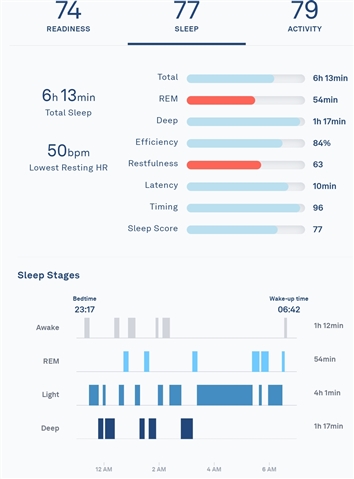Dear all,
first of all really excited to hopefully soon join the Garmin community. I am very close to getting myself a Fenix 6 pro and have done many ours reading up on reviews, this forum, etc. Alternative would be to wait for the Fenix 7 (and I have also read the threads in this forum to be aware that no one knows when it will be launched).
The one thing that is keeping me back is the seemingly weak sleep tracking accuracy. This is for me a key functionality and I need it to be at least somewhat trustworthy.
There have been a number of posts on it, but most of them are >1y old. The latest one is https://forums.garmin.com/outdoor-recreation/outdoor-recreation/f/fenix-6-series/248054/sleep-tracking-accuracy-after-update-13-00 - which is 4m old and does not give too many insights.
At the same time I see that updates to sleep tracking have been mentioned in recent firmware releases.
Long story short I have two questions:
1. What is the most recent perspective on sleep tracking accuracy of the Fenix 6?
2. In case it is still bad - what is your hypothesis for the root cause of it - bad hardware (in which case I'd rather wait for the 7 and hope they improve it) or bad software (in which case I could go for the 6 and trust that Garmin will continue to update)?
Thanks in advance for your insights!
A





